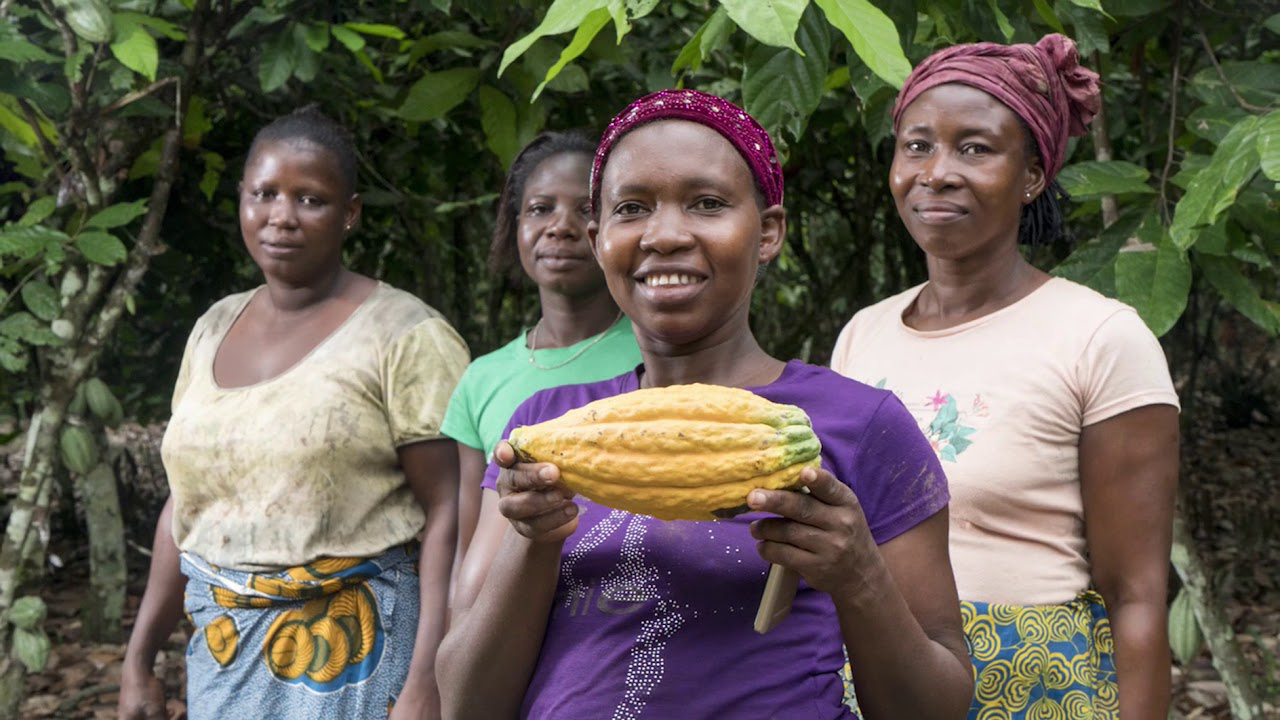
Chocolate Makers Agree to Stop Cutting Down Forests in West Africa for Cocoa

By Mike Gaworecki
At COP23, the UN climate talks in Bonn, Germany that wrapped up last week, top cocoa-producing countries in West Africa announced new commitments to end the massive deforestation for cocoa that is occurring within their borders.
Ivory Coast and Ghana are the number one and number two cocoa-producing nations on Earth, respectively. Together, they produce about two-thirds of the world’s cocoa, but that production has been tied to high rates of deforestation as well as child labor and other human rights abuses.
The so-called “Frameworks for Action” that were announced by the two countries last Thursday not only aim to halt the clearing of forests for cocoa production, especially in national parks and other protected areas, but to restore forest areas that have already been cleared or degraded. They also include commitments to developing alternative livelihoods and crop diversification strategies for cocoa farmers who will be impacted by the conservation plans. (Ivory Coast’s action plan can be seen here; Ghana’s here).
While halting deforestation is key to meeting the goals of the Paris climate agreement, recent research has shown that rehabilitating degraded forests is just as important if we are to keep global warming below two degrees Celsius.
A number of major players in the chocolate and cocoa industry have already signed on to the Frameworks, including Barry Callebaut, Cargill, Godiva, Hershey, Mars, Mondelez International, Nestlé, Olam, Sainsbury’s and more.
According to an investigation by the Washington, DC-based NGO Mighty Earth, much of the cocoa purchased from producers in Ivory Coast and Ghana by these chocolate companies is grown illegally in national parks and other protected areas. In several national parks, the group’s investigators found, 90 percent or more of the land has been converted to cocoa production operations.
“Less than four percent of Ivory Coast remains densely forested, and the chocolate companies’ laissez-faire approach to sourcing has driven extensive deforestation in Ghana as well,” Mighty Earth reported. Aside from destroying habitat relied on by wildlife, this deforestation has also pushed protected species like chimpanzees, elephants, leopards and pygmy hippos into increasingly smaller forest fragments, where they are far easier to hunt and thus more likely to be killed by poachers.
“The ancient forests of our nation, once a paradise for wildlife like chimpanzees, leopards, hippopotamus, and elephants, have been degraded and deforested to the point that they’re almost entirely gone. This deforestation is due principally to the cultivation of cocoa,” Kouamé Soulago Fernand, the general secretary of ROSCIDET, a network of environmental and sustainable development NGOs in Ivory Coast, said in a statement.
“Our country has become dependent on a cocoa industry that destroys forests and the whole range of ecosystem services they offer the country. We must achieve a sustainable cocoa industry that respects forests and that actually benefits communities and the country’s economy. The big chocolate companies must make financial and technical contributions to support the government’s conservation efforts.”
The new zero deforestation commitments made by Ivory Coast, Ghana and major chocolate companies could have implications outside of West Africa. The destruction of the two countries’ rainforests has pushed them to the brink of exhaustion in terms of agricultural viability, leading the chocolate industry to begin considering expansion opportunities in other rainforest regions, such as Africa’s Congo Basin, the Amazon in South America and the Paradise Forests of Southeast Asia.
“As an immediate next step, the chocolate industry must announce that it will extend its commitment to No Deforestation Cocoa to chocolate production around the world,” Mighty Earth said in a statement. “It’s great that the industry is taking steps to protect chimpanzee habitat in Ivory Coast, but that doesn’t mean anyone wants to eat a chocolate bar that killed an orangutan in Indonesia or a sloth in Peru.”
The announcement of the Frameworks for Action comes after the UK’s Prince Charles met with leading chocolate industry companies earlier this year to urge them to root deforestation out of their supply chains. The companies pledged at the time to come up with a plan they could announce publicly when the climate talks in Bonn kicked off in November.
“Prince Charles’ longstanding and profound commitment to rainforest conservation has translated into an initiative that may be remembered years from now as the moment West Africa’s forests began to grow back,” Mighty Earth noted.
But the group warned that the Frameworks represent the beginning of efforts to solve the deforestation crisis in Ivory Coast and Ghana, not the end goal. “There is a lot of work indeed to be done before consumers can feel good again about consuming some of their favorite chocolate brands,” Mighty Earth said in a statement. “But consumers and West Africans can at least know that the chocolate industry and their governments are finally setting about the task in a serious way.”
Reposted with permission from our media associate Mongabay.

 233k
233k  41k
41k  Subscribe
Subscribe 